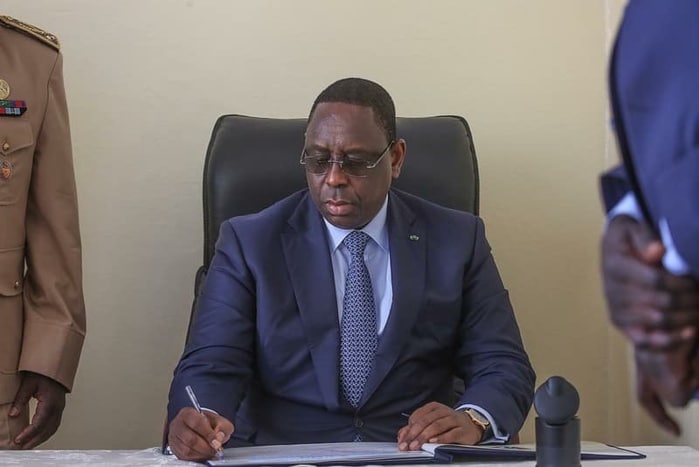Amnesty Law: Macky Unveils his Plan

Ousmane Sonko will be able to regain his right to stand for election if the MPs adopt the bill granting amnesty for acts committed between 1 February 2021 and 25 February 2024. Yesterday, the Conference of Presidents of the National Assembly met to set the date for the plenary session.
By Malick GAYE – For the next 5 years, Ousmane Sonko will not be able to stand in a presidential election. This is the legal consequence of his final conviction for defamation in the Prodac case, which pitted him against Minister Mame Mbaye Niang. This is what caused his absence from the list of candidates for the presidential election initially scheduled for 25 February 2024 before being postponed. But this situation is likely to change in the next few days. Yesterday, the Conference of Presidents of the National Assembly met. The agenda was to discuss the bill providing amnesty for events that took place between 1 February 2021 and 25 February 2024.
Read the column – Maïmouna and our Guilty Conscience
If the Plenary adopts it, Ousmane Sonko will be able to regain his eligibility. Article 2 of the amnesty bill stipulates that « amnesty entails, without ever giving rise to restitution, the total remission of all principal, accessory and complementary penalties, as well as the disappearance of all disqualifications, exclusions, incapacities and deprivations of rights attached to the penalty ». This concerns « all acts likely to be classified as criminal or correctional offences, committed between 1 February 2021 and 25 February 2024 both in Senegal and abroad, relating to demonstrations or having political motivations, including those made through any communication support, whether or not the perpetrators have been tried ».
Read the column – One Thousand Reasons to Say No to Amnesty
According to the explanatory memorandum, the aim of this amnesty bill is to calm the « political and social climate », strengthen « national cohesion » and consolidate « national dialogue ». To this end, the document notes that « certain proceedings brought before the courts have resulted in convictions leading to incapacitation and disqualification from voting and standing for election ». It is with this in mind that this bill amnesties offences committed both in Senegal and abroad, covering a period from 2021 to 2024″.
By the same token, « physical restraint may not be imposed on convicted persons who have benefited from an amnesty, except at the request of the victims of the offence or their beneficiaries ».
End of Mandate: Macky to Leave on 2 April
However, the document states, « the minutes of judgments or rulings as well as decrees, orders and decisions taken within the framework of the civil service or national orders are exempt from this prohibition when they have been deposited in the registries or the National Archives ».
Following its meeting yesterday, the Conference of Presidents referred the bill to the National Assembly’s Law Committee. The latter is due to meet today at 9am, before submitting the bill to the plenary session.
mgaye@lequotidien.sn

